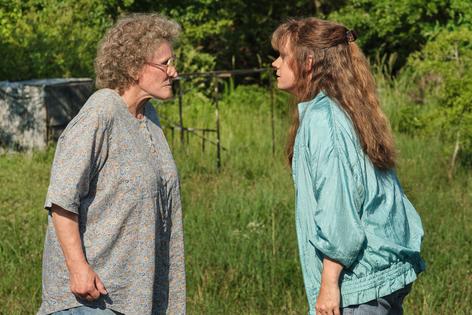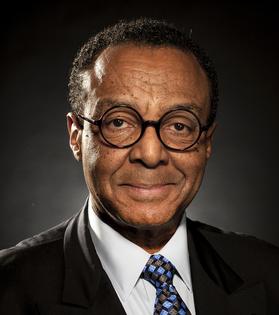When Hollywood came to my Ohio hometown (the book was better)
Among other momentous events, I’ll remember 2020 as the year when, decades after leaving my Ohio hometown, Hollywood brought it back to me.
Appropriately, reactions to Ron Howard’s film, “Hillbilly Elegy,” have been about as polarized as the politics that helped turn J.D. Vance’s memoir into a breakout hit in the 2016 election cycle.
As I have written before with unabashed Buckeye pride, Vance’s memoir about overcoming an impoverished childhood in rural Kentucky and Rust Belt Ohio to graduate from Yale Law School could hardly have come out at a better time.
Donald Trump had just surprised the political and pundit establishment, including me, by winning the Republican presidential nomination.
Conservative pundits in particular cheered the memoir’s accounts of lower-income grievance and cultural resentment among working-class whites whom globalism and structural economic changes had left behind.
Boosted by Oprah’s Book Club, among other notables, Vance suddenly became a sought-after Trump translator on talk shows in the fashion of “Luther,” President Barack Obama’s fictitious “anger translator” created by the “Key & Peele” comedy team.
Not surprisingly, Hollywood wanted a piece of this action. Popular filmmaker Howard brought cast and crew to Middletown — including stars Amy Adams as Vance’s drug-addicted mother and Glenn Close as his memorably profane but tough-minded grandma.
I thought the movie was pleasant and even heartwarming at times, mainly at the cost of the story and commentary elements that made Vance’s book so controversial.
Moviegoers who haven’t read the book might well wonder what made it controversial.
Howard’s storytelling strips away most of the book’s cultural and socioeconomic context that American Conservative writer Rod Dreher praised as doing “for poor white people what Ta-Nehisi Coates’s book did for poor black people: give them voice and presence in the public square.”
Perhaps that’s just as well. Critics have attacked Vance for blaming the victims of structural poverty, opioid addiction and lost employment opportunities for their problems. But, having talked to him a few times, I’m reminded that the book is fundamentally a very personal account of his own family’s struggles, not to be over-generalized to apply to other families.
More important, my fellow former Middletonian has — pardon the cliche — helped to start a new national conversation around an old question among liberals: Why do lower-income whites tend to vote so often against their own interests?
Vance opens readers up to a world that sounds similar to my family’s world on the Black side of town. Among the families that I knew across racial lines, money was only one of the ways that people valued “their own interests.” Religion and other cultural values, sometimes downright tribal, often ranked higher. Trump’s political success, particularly in 2016, came largely from his appeal to cultural interests, sometimes downright tribal.
You can see glimpses of that complexity in another memoir that coincidentally is being released this month: “The Blue View: The Uncut Journal of an Ohio Police Chief,” by Rodney Muterspaw, Middletown’s recently retired police chief.
Muterspaw essentially opens up 30 years of diaries of his work and growth as a police officer in a town that as recently as 2017 was in the national spotlight for its opioid addiction plague.
Among other riveting scenes, I was impressed as an alum of Middletown High School (Go Middies!) by this paragraph:
“Let’s see, I have relatives that are lesbian. Two of my best friends I hang out with are black. One of my really good friends who I confide in is a lesbian, business owner. My daughter’s homecoming date is black, her best friend is black. My home is constantly full of lesbians and black kids. I feed them, love on them, fight for them, hug them when they need it, and would do everything for them, yet an LGBT activist here in town said online today that I was a homophobic racist Police Chief because I haven’t implemented a training program specifically designed for the LGBT community. Some days you have to question the sanity of yourself and those you serve.”
Indeed.
You have to remember, the white cop advises himself, that “people don’t know the real you.” No, we’re all players on somebody else’s stage, being stereotyped by other people’s prejudices.
Yet I am cheered by my hometown’s new levels of diversity and tolerance compared with my day in the 1960s, when one of the biggest schoolwide “scandals” was whether the football team’s first Black quarterback would be allowed to uphold the custom of crowning the homecoming queen, who happened to be white.
In the end they kissed, the Middies won the game and another social-psychological barrier fell — just like in the movies. But still, there are so many more to go.
========
(E-mail Clarence Page at cpage@chicagotribune.com.)
©2020 Clarence Page. Distributed by Tribune Content Agency, LLC.
(c) 2020 CLARENCE PAGE DISTRIBUTED BY TRIBUNE MEDIA SERVICES, INC.










